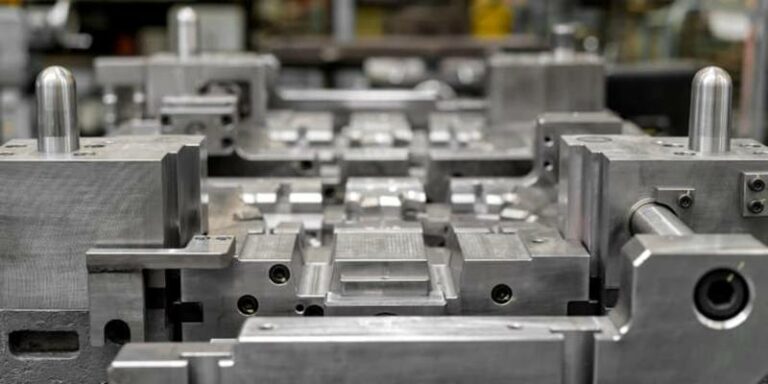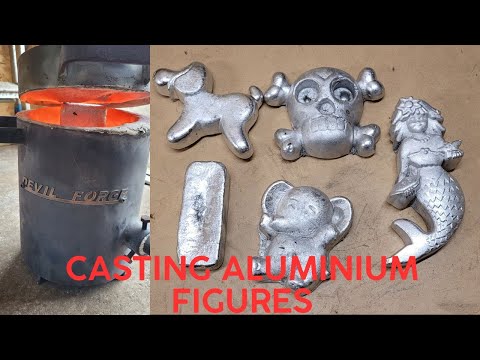The Buzz on Stahl Specialty Company
The Buzz on Stahl Specialty Company
Blog Article
The Only Guide to Stahl Specialty Company
Table of ContentsStahl Specialty Company Fundamentals ExplainedStahl Specialty Company Fundamentals ExplainedOur Stahl Specialty Company StatementsSome Known Facts About Stahl Specialty Company.Rumored Buzz on Stahl Specialty Company
The subtle distinction hinges on the chemical content. Chemical Contrast of Cast Light weight aluminum Alloys Silicon advertises castability by minimizing the alloy's melting temperature level and improving fluidness during casting. It plays a vital duty in permitting complex mold and mildews to be loaded precisely. In addition, silicon adds to the alloy's stamina and use resistance, making it valuable in applications where durability is vital, such as vehicle parts and engine components.It additionally boosts the machinability of the alloy, making it easier to refine right into finished products. In this means, iron adds to the overall workability of light weight aluminum alloys.
Manganese contributes to the toughness of light weight aluminum alloys and enhances workability. Magnesium is a lightweight element that offers strength and impact resistance to aluminum alloys.
Zinc boosts the castability of aluminum alloys and assists control the solidification procedure during spreading. It improves the alloy's toughness and firmness.
Top Guidelines Of Stahl Specialty Company
Due to the fact that aluminum-silicon alloys have great spreading buildings, high gas residential or commercial properties, simple procedures, and superb deterioration resistance, aluminum-silicon alloys are most frequently made use of in the die-casting market in the house and abroad. At the same time, aluminum-silicon alloys are likewise reasonably early and commonly identified alloys created and used in die-casting. After constant research study and improvement, the majority of the present international mainstream aluminum-silicon alloys have been settled and are nothing greater than A356, A360, A380, ADC12, B390, and A413.
The key thermal conductivity, tensile strength, yield strength, and prolongation differ. Select appropriate basic materials according to the performance of the target product generated. Amongst the above alloys, A356 has the greatest thermal conductivity, and A380 and ADC12 have the least expensive. The tensile limitation is the contrary. A360 has the ideal yield stamina and the highest elongation price.

Our Stahl Specialty Company Diaries
In precision spreading, 6063 is fit for applications where elaborate geometries and top quality surface area coatings see here now are extremely important. Instances include telecommunication rooms, where the alloy's superior formability permits sleek and cosmetically pleasing designs while maintaining structural honesty. In the Lights Solutions industry, precision-cast 6063 parts produce stylish and efficient lighting fixtures that require elaborate shapes and great thermal efficiency.
(https://pinshape.com/users/7350411-stahlspecialc#prints-tab-open)
The A360 shows premium prolongation, making it perfect for complex and thin-walled parts. In precision casting applications, A360 is well-suited for industries such as Consumer Electronic Devices, Telecommunication, and Power Devices.

In precision casting, light weight aluminum 413 beams in the Customer Electronic Devices and Power Devices sectors. This alloy's superior rust resistance makes it an exceptional option for outside applications, making sure resilient, resilient products in the mentioned markets.
Stahl Specialty Company Fundamentals Explained
The aluminum alloy you select will substantially affect both the spreading process and the homes of the final product. Since of this, you need to make your decision thoroughly and take an informed technique.
Figuring out the most appropriate light weight aluminum alloy for your application will certainly indicate weighing a wide array of attributes. The initial classification addresses alloy qualities that influence the production procedure.
The alloy you choose for die casting directly affects a number of facets of the casting process, like how very easy the alloy is to work with and if it is prone to casting flaws. Hot breaking, likewise referred to as solidification splitting, is a typical die spreading defect for light weight aluminum alloys that can lead to inner or surface-level splits or fractures.
The Main Principles Of Stahl Specialty Company
Particular light weight aluminum alloys are much more at risk to hot fracturing than others, and your selection should consider this. Another common defect located in the die casting of aluminum is pass away soldering, which is when the actors adheres to the die wall surfaces and makes ejection tough. It can harm both the actors and the die, so you ought to try to find alloys with high anti-soldering homes.
Deterioration resistance, which is currently a significant characteristic of light weight aluminum, can vary significantly from alloy to alloy and is a crucial particular to think about relying on the ecological conditions your item will be exposed to. Wear resistance is one more home frequently sought in aluminum items and can separate some alloys.
Report this page